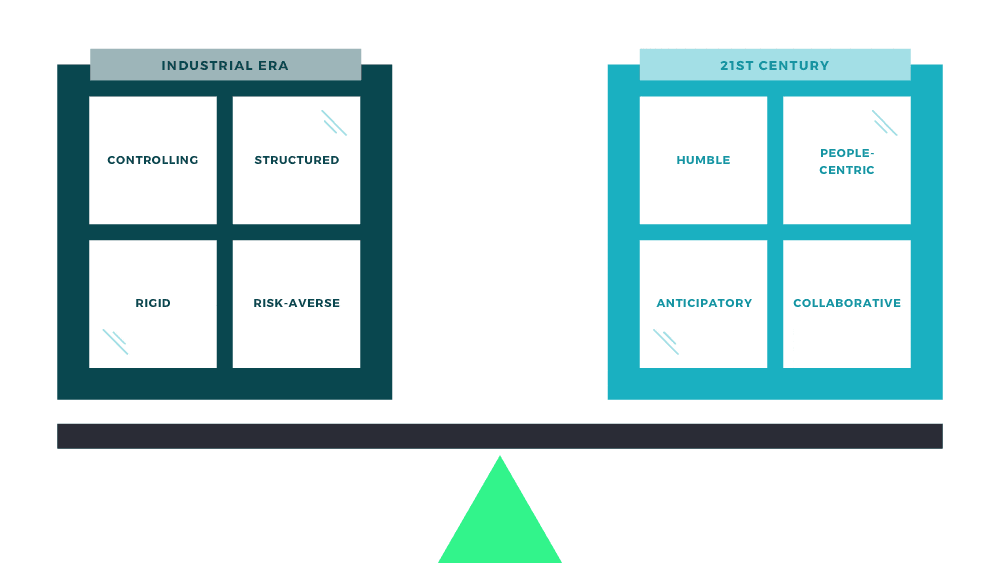We have a dare for you – A dare to governments, civil servants, leaders, and changemakers from all over the world to come together in defining a bold direction for the future of governance. Public governance of the industrial era was based on a set of principles that are now…
We have a dare for you – A dare to governments, civil servants, leaders, and changemakers from all over the world to come together in defining a bold direction for the future of governance.
Public governance of the industrial era was based on a set of principles that are now starting to shift towards the needs of the 21st century.
In our collaborative publication with the National School of Public Administration of Brazil (Enap), we focus on four key government functions to analyze these shifts:
- Policymaking
- Public services
- Public finance
- Human resources
Governments of the past were governed by different leaders with varying ideologies, but often with similar-looking bureaucracies.
These bureaucracies reflected how society was molded and how information was gathered: through top-down hierarchies, centralized sources of news, data, and ideologies. At the same time, they were organized around thematic areas with few interlinkages.
Moreover, crises of the past did not necessarily affect everyone equally. They developed more linearly with fewer decision-makers and stakeholders to engage and appease.
Today, the world looks different.
Governments have to deal with policy issues that are complex, systemic, and uncertain in their nature. Challenges like the climate crisis cannot be solved in one ministry or government alone. They must be streamlined across departments and diverse stakeholders.
Top-down, command-and-control management may seem like an efficient way to implement solutions, but in practice it is ineffective. Governments cannot steer complex systems through rigid hierarchies.
Information about what works and what does not is scattered across many actors — it requires new capacities and ways of working to access and make sense of the data that is available for societal problem solving.
How can we bring transformation to the heart of government?
Public governance should be relevant to the needs of its time.
Some of the key principles of industrial era public governance were efforts to gain control over processes, the national state perceived as the primary actor, the enforcement of authority, as well as an aspiration to have clarity in processes.
These principles live their life in practically all government functions, which constitute the heart of government. This again, influences how governments operate.
In the 21st century, society demands that a government is capable of being anticipatory, collaborative, humble, and people-centric.

For more information, please contact:
Lead, Tranformative Governance
mikko.annala@demoshelsinki.fi
+358 40 778 6062

Embedding a long-term view
Theme
December 3, 2024
Capacity building
Theme
December 5, 2024
A time to build – shaping the next generation of public institutions
Post
December 19, 2024